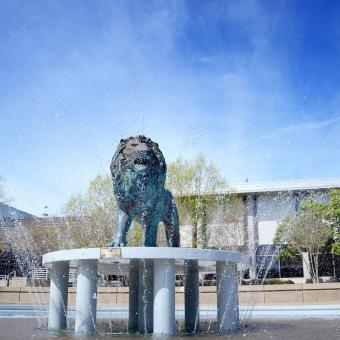By Keith Pierce
The Coastal Virginia Center for Cyber Innovation (COVA CCI) has awarded more than $640,000 to five research teams from Old Dominion University, the College of William & Mary and Hampton University, as well as commercial partners MI Technical Solutions and CivilianCyber.
The COVA CCI Research and Innovation funding allows these teams to expand their research regarding the preservation of privacy, integrating security of connected Internet of Things (IoT) devices, creating ways to use AI to assist in cybersecurity workforce development and improving cyberhygiene in the Department of Defense workforce.
COVA CCI, led by Old Dominion University, is one of four nodes of the larger state-funded Commonwealth Cyber Initiative (CCI). The other nodes are Northern Virginia (George Mason University), Central Virginia (Virginia Commonwealth University) and Southwest Virginia (Virginia Tech).
Luiz DaSilva, executive director of the statewide program, said he was "particularly excited that researchers are working on questions of immediate relevance to everyone, from cyber trust in the use of Internet of Things devices in our homes to the use of artificial intelligence in privacy preservation and improved security."
Hongyi Wu, director of ODU's Center for Cybersecurity Education and Research, points out that one of the key components of these research projects is their collaborative and interdisciplinary nature.
"COVA CCI encourages cross-campus and interdisciplinary collaborations, aiming to create 'cross-pollination' opportunities to foster strong academia-industry partnership and develop large, high-impact research initiatives," he said.
"These projects represent the great value provided by leveraging the expertise found within our region's research institutions," added COVA CCI program manager John Costanzo.
The projects selected for funding represent a variety of disciplines and expertise in both university and business sectors. This expertise includes computer science, higher education, philosophy, psychology and workforce development.
Jeremiah Still, an ODU professor of psychology, is partnering with MI Technical Solutions, a veteran-owned small business, to help the Department of Defense workforce improve cyberhygiene.
"Our goal is to increase end user's awareness of their cyber risks, and through this awareness we will harden our systems against attacks by improving policy compliance," he said.
William & Mary Professor Stephanie Blackmon is working with ODU professors Dylan Wittkower and Saikou Diallo to bridge the gap in trust of in-home connected devices for people at various points on the vision, autism, cognitive or mobility spectrum.
Their project "will create an app that gives users the option of controlling the collection and use of their data," Blackmon said.
ODU is also working with CivilianCyber, a company focused on developing comprehensive and scalable workforce development processes.
"CivilianCyber's goal is to achieve equitable access to opportunity in cybersecurity career fields while positioning the region at the forefront of cybersecurity workforce development expertise," said Deri Amason-Draper of Old Dominion University's Virginia Modeling, Analysis, and Simulation Center (VMASC).
The other two projects funded by this program are more technically focused on cybersecurity physical system security.
William & Mary computer science Professor Gang Chou is leading a team of faculty, graduate and undergraduate students from William & Mary and ODU who are working together on exploiting IoT devices' power side-channel information to identify the compromised devices. Computer science Professors Chunsheng Xin and Danella Zhao are leading the ODU side of this research project.
The final project, a collaboration among William & Mary, ODU and Hampton University, will explore privacy-preserving in deep image retrieval systems. This effort is led by ODU Professor Cong Wang, William & Mary Professor Qun Li and Hampton University Professor Janet Walter-Williams. Their research targets a unique angle of the pervasive privacy challenges on the internet and exploits a new vulnerability of AI algorithms to preserve privacy.
Related News Stories
VMASC Develops Real-Time Platform That Predicts Spread of COVID-19 in Virginia
Researchers Ross Gore and Christopher J. Lynch created the site, which gives a seven-day forecast that is updated daily. (More)
ODU Researchers Help Prepare for a World with Simultaneous Pandemic and Hurricanes
VMASC researchers Joshua Behr and Rafael Diaz are examining the competing imperatives that preparing for a storm while dealing with the COVID-19 crisis would create. (More)
VMASC Scientist Hosts Weekly Stress-Free Art Workshops
The aim of VMASC's Bratislav Cvijetić is to reach out to students and families at home during pandemic. (More)






